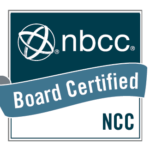Q: What is a Parenting Coordination?
A: It is a dispute resolution process in which a qualified impartial professional assists separated or divorced parents to resolve issues pertaining to their parenting plan. This can include: identifying disputed issues; reducing misunderstandings; clarifying priorities; exploring possibilities for problem solving; developing methods of
collaboration in parenting; developing a parenting plan; and aiding parties in complying with the court’s order
regarding parenting issues. Parenting Coordination helps the parents avoid repeated trips to court over parenting issues.
Q: What is the purpose of Parenting Coordination?
A: To offer children the opportunity to grow in a home environment free from the devastating stress of being caught in the middle of parental conflict. Parenting Coordination combines assessment, education, case management, conflict management and sometimes decision-making functions to help high-conflict parents who have demonstrated an inability or unwillingness to make parenting decisions on their own or comply with parenting agreements and court orders. The family’s progress is monitored to ensure that parents are fulfilling their obligations to their child while complying with the recommendations of the court. The process is intended to assist parents establish and maintain a healthy co-parenting relationship by reducing parental conflict and the risk factors that influence a child’s post-divorce adjustment.
Q: Can a Parenting Coordinator make recommendations and temporary decisions for the parents?
A: Parenting Coordinators can make recommendations and decisions for parents within the scope of the appointment order. The Parenting Coordinator’s authority is outlined in the court order or by the consent of the parents.
Q: What kinds of issues does a Parenting Coordinator address?
A: Parenting Coordinator may work to resolve the following types of issues:
- Minor changes or clarification of parenting time schedules including vacation, holidays, and temporary variations from the existing parenting plan.
- Transitions or exchanges of the children including date, time, place, means of transportation and/or transporter
- Health care management including medical, dental, orthodontic and vision care
Child-rearing issues - Psychotherapy or other mental health care including substance abuse assessment or counseling for the children
- Psychological testing or other assessment
- School choice issues
- Extracurricular activity disputes
- Religious observances and education
- Communication between the parents about the children
- Clothing, equipment and personal possessions of the children
- Haircuts, tattoos, ear and body piercing
- Role of and contact with significant others and extended families
- Parenting classes for either or both parents
- Any other issues as agreed by the parents and included in the court order or stipulation appointing the parenting coordinator
Q: Can Parenting Coordinators make decisions that would change legal custody and physical custody from one parent to the other or in other ways, substantially change the parenting plan?
A: No, this is beyond the scope of the Parenting Coordinator’s role.
Q: Can a Parenting Coordinator serve in more than one role?
No, a Parenting Coordinator should not be appointed, or accept a Parenting Coordinator appointment if they have been involved in a case as a guardian ad litem, custody evaluator, therapist, or one parent’s attorney.
Q: Does the Parenting Coordinator perform the same function as a Guardian ad Litem (GAL)?
A: No, a GAL is a party to the case, serves as the child’s legal representative, and may make recommendations to the court that are in the child’s best interests. The PC is not a party to the case, does not represent either parent or any of the children. The PC attempts to facilitate resolution of issues for the entire family.
Q: Does a Parenting Coordinator offer legal advice?
A: No, offering legal advice is outside the scope of the Parenting Coordinator’s role.
Q: How is a Parenting Coordinator paid?
A: Fees associated with the parenting coordination process are divided between the parents, taking into consideration the relative incomes of the parties. The Parenting Coordinator explains and discusses with the parents fees, costs and method of payment, in writing and prior to beginning the parenting coordinator process. Since parenting coordination is not considered a therapeutic service, third-party payments are not and should not be accepted. The PC fee is significantly less than the fees charged by an attorney and significantly less than even one day in court.


